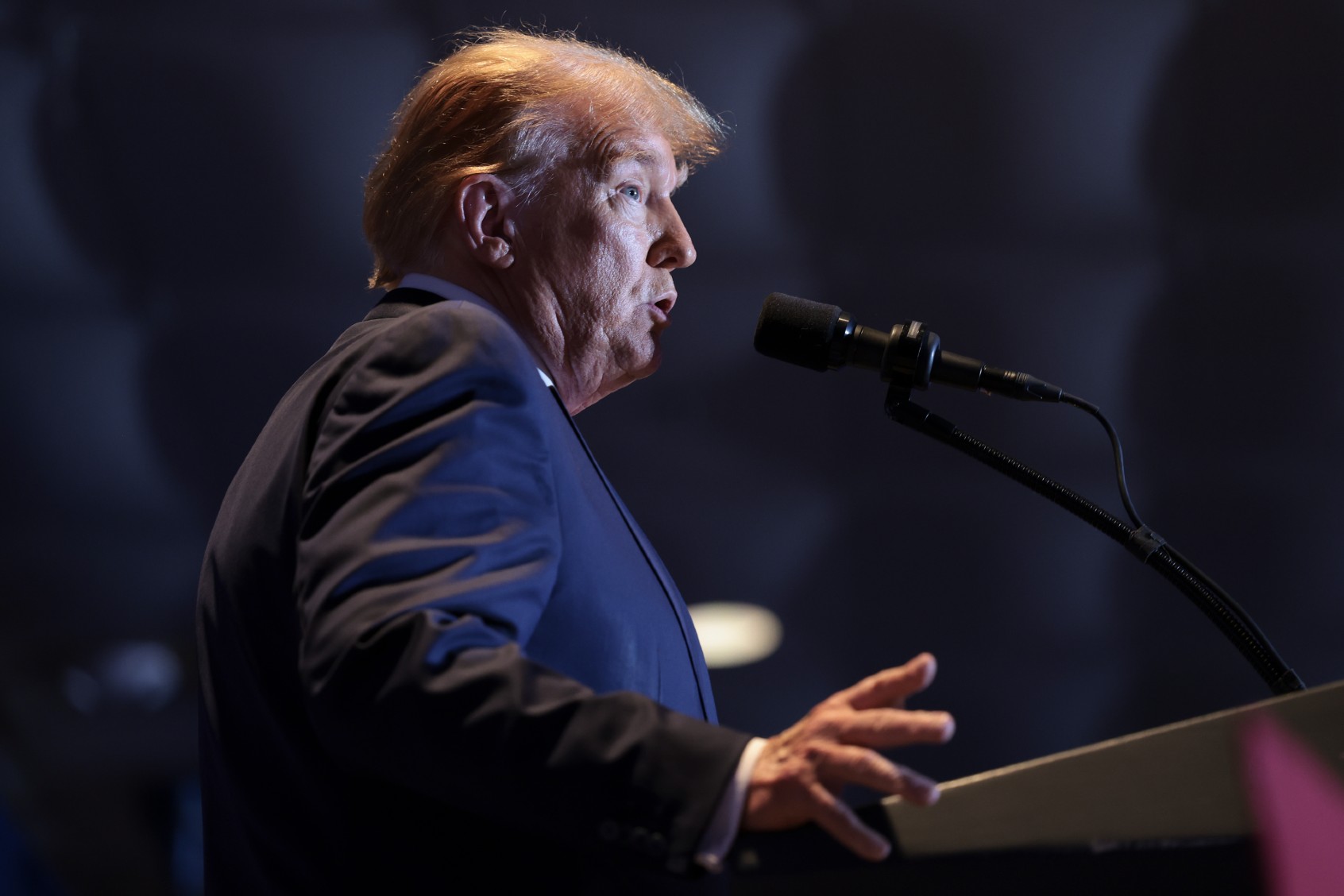Commencing from April 22 onwards, the Supreme Court has granted hearings on Donald Trump’s assertion of immunity from prosecution concerning allegations of plotting to overturn the 2020 election. This development halts his federal trial intermittently until the court renders its decision on the matter.
The court’s brief order delineates the pivotal question: “Whether and to what extent does a former president enjoy presidential immunity from criminal prosecution for conduct alleged to involve official acts during his tenure in office.”
As elucidated by The New York Times, the urgency underpinning the Supreme Court’s response to Trump’s plea for delay is significant, as the outcome will shape the trajectory of his reelection campaign, contingent upon whether a trial proceeds and its timing.
Trump (Credits: The New York Daily News)
In a statement released on Truth Social shortly after the announcement of the latest postponement, Trump articulated, “Legal Scholars are extremely thankful for the Supreme Court’s Decision today to take up Presidential Immunity.” He continued, expounding on the necessity of presidential immunity for effective governance, expressing concern that the absence of such immunity could impede decision-making and subject presidents to potential extortion or blackmail post-office.
“A President has to be free to determine what is right for our Country without undue pressure,” Trump emphasized. “If there is no Immunity, the Presidency, as we know it, will ‘no longer exist.'”
Andrew Weissmann, Co-host of the MSNBC podcast “Prosecuting Donald Trump,” lamented the delay’s implications, stating, “Every day of delay operates as granting Trump de facto immunity.” He further criticized the Supreme Court’s timing, suggesting that their delay in taking up the case earlier played into Trump’s hands.
